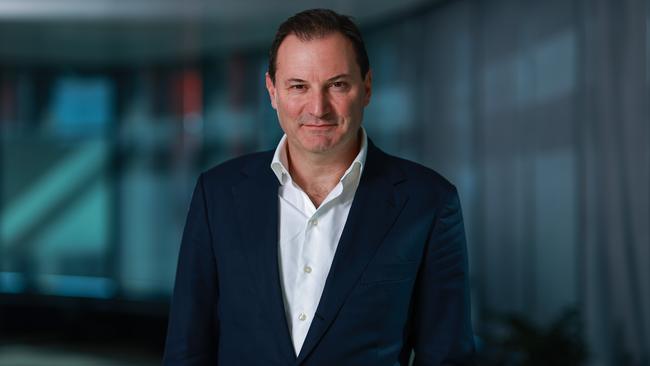Brookfield’s Origin Energy bid to be given extra time
Origin Energy is expected to be asked to grant Brookfield Asset Management extra time to finalise its $18.4bn takeover bid.

Origin Energy is expected to be asked to grant Brookfield Asset Management extra time to finalise its $18.4bn takeover bid, the second delay to an offer that could deliver Australia’s largest energy retailer into private hands.
The buyout bid from Brookfield and its consortium partner MidOcean Energy was first disclosed on November 10 with a eight-week due diligence period granted to assess the books.
Origin on December 21 then agreed to extend the consortium’s exclusivity period to January 16 with a plan for the pair to then turn their $9 a share price offer into a signed, binding deal.
Sources said the duo were expected to seek more time on Monday after previously declaring they had found no material adverse issues during due diligence, amid concern the Albanese government’s recent gas market intervention may have created an extra layer of financial risk which could damage the deal from proceeding.
Brookfield has pledged a $20bn injection to fuel Origin Energy’s green ambitions, winning an early nod from the board and backing from several high-profile shareholders.
Morgan Stanley brokers upgraded Origin to overweight on Monday, arguing new analysis showed energy transition opportunities in back-up gas and renewables were opening up faster than previously expected.
“We have higher conviction in the company’s access to capital, and its ability to monetise the opportunities that our new analysis reveals,” the broker said.
“We think the potential upside for Origin, and eventually for AGL, is still underappreciated by many investors, especially in view of current market volatility.”
The deal, the third offer by the consortium since talks started in August, includes a plan for Brookfield to invest an extra $20bn in Origin through to 2030 to build new renewable supplies and back-up energy capacity.
“We see Australia’s bipartisan support for decarbonisation, with legislated targets, boosting the prospects for energy transition investment. Key success factors include access to capital, and the capability to deal with the complexity,” Morgan Stanley said.
The buyout would result in Origin being split into two. Brookfield would control Origin’s energy markets business, comprising electricity and gas retailing, while EIG’s MidOcean unit would buy the integrated gas business, which includes the prized APLNG export plant.
Companies including Origin face a difficult challenge as they work to wind down coal-fired generation plants and accelerate a switch to renewables amid historically high wholesale electricity prices. The company is also among big industry players caught in the crosshairs of the government’s energy legislation.
The national cabinet’s sweeping market intervention has caused shock among energy producers with a combination of price caps on gas and coal and a new code of conduct that could result in a requirement for gas to be permanently sold at a reasonable price.
Woodside Energy and Shell have suspended talks with buyers to supply new gas into Australia’s east coast, blaming the federal government’s series of measures which it warned could lead to shortages and gas rationing. The Prime Minister said this week his government would consider adopting a national gas reservation policy as a longer-term solution to lower energy prices.
In August, the Australian Competition and Consumer Commission warned of a “looming” shortfall in the east coast gas supply, saying domestic supplies could fall short of projected 2023 demand by more than 55 petajoules, which could see prices spike in the winter – a situation the government’s market intervention is designed to prevent.
In the short term, the earnings of major producers are not expected to take a major hit because most sell their gas and coal under long-term contracts, and are therefore sheltered from the temporary 12-month caps that will be in effect in 2023.
Origin has 4.5 million customers and operates Australia’s biggest coal power plant – Eraring in NSW – along with a 27.5 per cent stake in the Australia Pacific LNG project in Queensland.



To join the conversation, please log in. Don't have an account? Register
Join the conversation, you are commenting as Logout